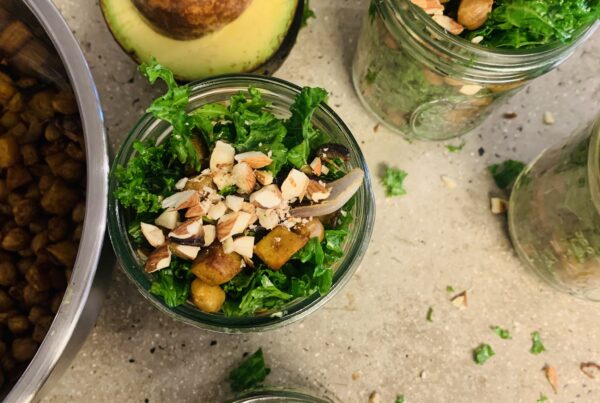The new year hype is an opportunity to ditch old habits and kick off new ones. NO DOUBDT! While New Year’s resolutions may sound a little silly (or overrated) for some, it’s a time of the year when a lot of us are willing to set new goals and most likely stick to them. Small steps and consistency lead to big changes.
How about instead of setting big goals and intentions, we let go of that and the pressure that comes with it and choose to go with small but consistent changes?
If just like me, you allowed yourself to eat the treats, drink that wine, and go to bed extra late during the holidays and vacation, I’m here to tell you that the benefits of decompressing, social interactions, and having fun outweigh the temporary detour before “getting on track” and sticking to your goals – unless, of course, you’re dealing with a flare-up or an acute health situation.
Now that I can finally get back to my routine, it’s time to revisit my habits, values, and goals.
I’m in no rush. I’ve made such great progress over the last couple of years and what I need now is to take more time to nurture social connections and be easier on myself. Small changes, such as inviting friends for coffee instead of going on my own, getting on a call instead of texting, and baking some extra goods to share with friends, are fairly easy to include in my everyday life.
What would it look like for you? Small steps, slowly but surely long-lasting benefits, and if you decide to go with changes in your diet to eat healthier and boost performance, here are some of my favorite tips…
1 – Prioritize whole foods over highly processed foods.
Go for an apple with peanut butter instead of grabbing chips, cookies, or anything to snack on between meals. Make more room in your diet for whole foods, it will leave less space for processed foods.
Understand more about whole foods and processed foods here.
2 – Choose good fats.
Extra virgin cold press olive oil, unrefined avocado oil, butter from pasture-raised cows, and unrefined coconut oil are excellent for cooking. All oils, except olive oil, can be used for high-heat cooking.
Palm oil, canola oil, corn oil, and sunflower oil are usually found in ultra-processed foods and can be avoided by reading the list of ingredients or consumed in moderation.
Fats are a macronutrient that must be consumed in significant amounts, so choosing the good fats can be game-changing to boost overall health, improve metabolism at the cellular level, and support the manufacturing of hormones.
Understand more about macronutrients here.
3 – Cook your meals more often.
This one might be the most challenging for some, and if you’re not into cooking, my Ultimate Meal Prep Guide can certainly inspire you and provide useful information.
When you cook your own meals you know the ingredients you are using and that is key. Use minimally processed and good-quality ones, free of added sugars, oils, and sodium. You simply can’t go wrong with whole foods.
Quality over quantity is crucial, and so is the importance of recognizing what ingredients are good and functional for the goals you’re trying to achieve. That’s when a nutrition coach can help you. Navigating grocery shopping and restaurant menus can be easier when you understand some basics of nutrition and the food industry.
Prioritizing whole foods, good fats, and homemade meals is a hell of a combo, but perhaps you start with only one of them.
Need more tips? Choose a couple, or as many as you want, but remember, small steps, big changes. Once you get them into your routine, you’re read to adopt more.
1 – Eat more apples.
2 – Eat less packaged foods.
3 – Read the food label, specifically the ingredients.
4 – Swap store-bought salad dressing for homemade.
5 – Eat more good fats: olive oil, flax seeds, walnuts.
7 – Include smoothies in your routine.
8 – Eat eggs for breakfast.
9 – Skip the deep-fried food at the restaurant.
10 – Drink more water.



